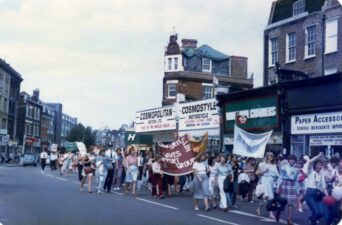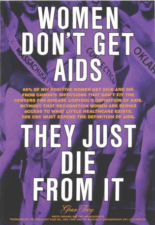My grandmother has lived in Britain for sixty five years, but occasionally she transports us back to St Kitts. We listen in awe as she recalls defeating my grandfather in horse races, diving into the sea in search of discarded mangos, and helping her father harness crops from their small plantation. She recently turned 90 years old, and over the years I have noticed three activities that brighten her face: watching football (it’s always on the television but no team is worthy of her support because they’re all “rubbish”); cooking (every week she insists on cooking curried lamb, rice and peas and fried chicken for the family); and telling these wonderful stories. Yet I’ve noticed that these recollections often stop in the late 1950s – the time during which she joined my grandfather in Leeds. I don’t believe she looks back on those years with the same fondness – how could she? As was often the case with Caribbean immigrants, she had been forced to leave her children behind because the tickets were expensive – some of whom permanently stayed behind and whose existence I only learned of when I was older. She bid farewell to the warmth of family and the Caribbean sun for cold long working days and the racism she must have experienced but rarely recounts. My dad continues the family oral tradition by filling in the gaps with his tales of provoking the National Front as they sold their racist newspapers outside the Merrion Centre, of travelling to London to partake in the Black People’s Day of Action march, and of activists Linton Kwesi Johnson and Darcus Howe travelling to the Mandela centre to discuss Black Power. Nonetheless, I struggled to find these events within the historiography, and the voices and experiences of women were absent from the literature that I did find. I started to wonder about my dad’s concentration on Johnson and Howe, and what women thought about the radical activity unfolding around them. Did they participate? And with an increasing amount of the historiography on Black Britain concentrating on radicalism, what did older women like my grandmother think of her son’s interest in a movement that undermined the ideals of respectability that governed the colonial Caribbean?
Therefore, I decided to investigate the experiences of women during the 1970s and the 1980s for my MA dissertation – this period was structured by political and cultural activism ranging from the Black Power movement to the rise of Afrocentrism. I sought to capture local reactions to the events described by my dad, and to find the stories that my grandmother overlooked in preference for memories of the Caribbean. While conducting oral history interviews I was introduced to When Our Ship Comes In: Black Women Talk by Khadijah Ibrahiim and Susan Pitter. It was a collection of rich personal histories and testimonies from elder women within the community, who were known as the Chapeltown Black Women’s Writers’ Group. These women came together to “paint [their] own portraits” and “to speak the truth” due to the erasure of their contributions as Black women: “the pillar[s] of the Black communities.” By reading this anthology alongside other independent publications, newspapers, and material collected within the community, I learned about local inspirational Black women whose truths were overlooked within the public record. Women such as Odessa Stoute, who chaired the Chapeltown Parents Action Group that led a successful strike against Cowper Street School in 1973 – a strike that inspired John La Rose when he founded the Black Parents Movement in London two years later. Two other women – Annette Liburd and Fayola Hendrickson – were radical and artistic champions who were unafraid to challenge wrongdoings and “who created with artistic freedom and no apologies” – as beautifully summarised by Ibrahiim in her anthology. There were also older women who pursued different forms of activism but were just as powerful and left enduring legacies: Mrs Gertrude Paul, who became the first Black headteacher in Leeds and co-founded the city’s first Black supplementary school, and Mrs Eulalie Procope, who worked with the Community Relations Council and other organisations to secure better provisions for Black Britons living in the impoverished area of Chapeltown. These women are rarely mentioned within publications on Black British history, yet their contributions have shaped activism in Leeds and across the country. Following the passing of Liburd in 2005, Darcus Howe wept and recalled her as “an unsung heroine” of Black British activism who was more radical than himself: “She was fearless at a time when cowardice tended to paralyse community efforts for change.” We cannot allow the names of these women to disappear as has happened to countless others over the centuries.
While archives were incredibly useful, no method was more helpful than the tradition my grandmother had shared with me throughout my childhood. Without the personal testimonies of the women and men that I interviewed, I could not challenge the records that overlooked key details; as sources frozen in time they often cannot speak of the inequalities inscribed within them, or of the stories that were important to women but were deemed irrelevant by those who controlled the production of sources. We need to reach out to more women like my grandmother and capture these stories – the good and the bad – before they disappear forever. The recent attacks on the memorial of David Oluwale, as well as the criticism I received for discussing Black history in Leeds, further proves that Britons – especially us northerners – are still uncomfortable with the concept of ‘Black’ British history. I write this after having finally set up a (very overdue) oral history interview with my grandmother and her older sister, to allow them – like the Chapeltown Black Women’s Writers’ Group – to paint their own portraits for future generations of the Warner family. So I conclude with a question, or perhaps it’s more of a plea: what are you doing to ensure that the truths of your elders are not lost forever?
Further reading:
Chapeltown Black Women Writers’ Group. When Our Ship Comes In: Black Women Talk (Yorkshire Art Circus, 1992)
Howe, Darcus. ‘Urban life – Darcus Howe pays tribute to an unsung heroine’ republished in Sorrel and Black Cake: A Windrush Story <https://www.mylearning.org/stories/sorrel-black-cake-a-windrush-story/1121>
Ibrahiim, Khadijah. Another Crossing (Leeds: Peepal Tree Press Ltd, 2014)
Olivia Wyatt is a PhD researcher at QMUL looking at the significance of complexion within Black British communities during the twentieth century. Her MA dissertation on Caribbean women’s activism in Leeds was awarded the Women’s History Network Dissertation Prize and the Marion Sharples Prize. She co-founded From Margins to Centre?: An undergraduate conference on marginalised histories, and she has completed an internship as a researcher and listicle-writer for BBC Radio 4’s history podcast You’re Dead To Me. She volunteers with the Young Historians Project and Harewood House Trust as a researcher of Black British history and Caribbean slavery

